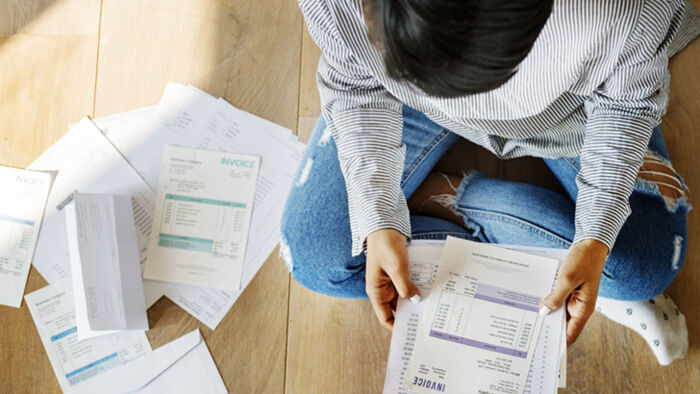What to do if you haven't lodged a tax return in years
Skipping a tax return can easily turn into several years of skipped returns, but it's never too soon or too late to right the ship.
Here is why you should, and how you can, get yourself out of the hole.
The bad news
Everyone who earns more than the tax-free threshold of $18,200 is required to lodge a tax return, and you may still have to lodge one if you earn less than that and have had tax deducted from your pay.
While you might be able to avoid the taxman for a few years, eventually the chickens will come home to roost.
"If you're behind with one or more tax returns, the ATO will catch up with you and will take action," says Mark Chapman, director of tax communications at H&R Block.
So what penalties do you risk?
"In the first instance, the ATO may impose a Failure To Lodge (FTL) penalty on you where your tax return is not lodged by the due date," says Chapman.
"FTL penalties are calculated at the rate of one penalty unit for each period of 28 days or part thereof that the document is overdue, up to a maximum of five penalty units. The value of a penalty unit is currently (since July 1, 2020) $222 so the maximum penalty which can be applied for an individual is $1110."
However, Chapman says that while the penalty is normally applied automatically, it is not normally applied to returns that generate a refund or don't result in a tax bill.
"In addition, where a penalty is applied, the ATO will sometimes remit it where it is 'fair and reasonable to do so', for example in the event of natural disaster or serious illness."
And it can get worse, still.
"Although unusual, the ATO can and does prosecute taxpayers for failing to lodge tax returns," says Chapman.
"The maximum penalty which can be applied on prosecution is a fine of $8500 or imprisonment for up to 12 months."
On top of penalties, the ATO may apply a default assessment to work out how much you owe.
"This is basically an estimated assessment of the taxpayer's income, based on data held by the ATO about the taxpayer or similar taxpayers," says Chapman.
Because they're estimations, they can be wrong. And that error margin could have you paying more than you should.
"Because these assessments are estimated, they are rarely entirely correct and often show a higher tax liability than the taxpayer actually owes since they often don't take into account items like deductions."
Taxpayers can appeal against a default assessment but they must be able to show what their actual tax liability was.
"Simply arguing that the ATO's figures are not correct is not enough."
The good news
In general, most people get a refund from their tax return.
"Last year, more than 10.92 million refunds were issued, totalling more than $30.91 billion with an average refund of $2829," says Chapman.
Ignoring tax time year on year may cheat you out of a lot of money.
"I did 33 years' worth for one client and he got $74,000 back," says Adrian Raftery, from the accounting and tax service Mr Taxman.
"Another client has 50 years' worth, I have just processed the first 11 and he is getting back $25,000 from just them alone."
Take action
It should be obvious at this point, but the best thing you can do is bite the bullet and take action.
"I understand it is a bit of a stigma for those who are behind in their taxes, but once people get back on track they feel an absolute weight lifted off their shoulders and that dark, stormy cloud above them is gone," says Raftery.
"It's probably wise to go to a tax agent if you have overdue returns."
If your tax agent works out that you owe money to the ATO, you may be able to parcel the payments.
"The ATO will allow payment plans - your tax agent actually has authority to be able to set up one for you over 12 months," says Raftery.
"But there are a few things to note: you must meet the monthly payment without fail; interest is charged on the amount outstanding still; and you must have met all future tax obligations, i.e. lodge future returns on time plus pay any tax debts on those in full."
Get stories like this in our newsletters.



